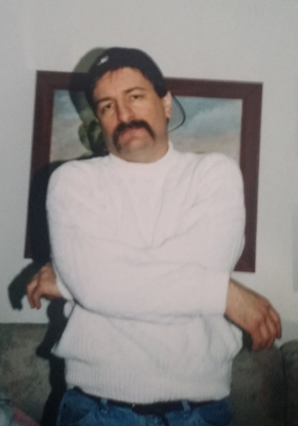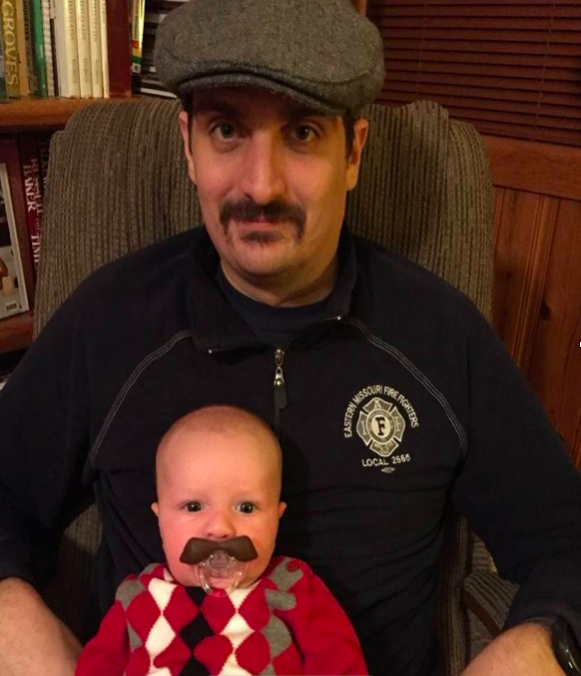Most people probably could not tell you when Suicide Prevention Awareness Month is. Most people probably could not tell you anything about why suicide occurs.
The stigma surrounding mental health and suicide is very much alive today.
We have been able to make short strides to open up about the topic. Yet, there are still many who will not change their minds or open up to listening to the science behind mental health and the causes toward certain disorders and the progression to suicidal ideation along with attempting suicide in itself.

I first learned the significance of mental health and suicide at an early age. I also had to learn about it the hard way.
November 15th, 1999, is a day that changed how I viewed suicide forever. It was like any other Monday. I walked home from school with a friend and started playing video games while my mom surfed the internet.
But it was the knock on the door next that changed our world.
At around six in the evening I answered the door to a few police officers. I was 15 at the time and seeing the police officers in front of me made me scared that I must have done something wrong!
I ran to my mom explaining that the police were there and promising it was not me this time! It didn’t take long for me to realize that I was right. I wish I hadn’t been.
My friend and I peered through the dining room toward my mom who was taken outside. It was when my mom threw her face into her hands that I knew my dad would not be coming home. She toward me as I crumbled to the ground.
All I asked was how. She told me that my dad had shot himself and that he died.

My dad had shot himself.
MY DAD had SHOT himself.
As a 15-year-old, I dealt with my own depression and anxiety as I tried to grow out of those awkward teenage years. I confided in my dad almost daily, and he provided me with many amazing coping techniques.
Yet, the man who helped me, was unable to help himself.
It was after that day that I decided to learn about mental health and to never let the stigma change my mind on talking to others who may need help themselves.
As the saying goes, hindsight is 20/20.
In 1996, my dad suffered from a Traumatic Brain Injury (TBI) at work. He severely injured himself to the point of breaking his back and having a melon sized hematoma on his head.
Post injury, my dad changed. He was still a jokester, but he also was quieter. He also had a shorter temper. Although, this was hard to notice because my dad rarely let it show.
It wasn’t until after his death that I learned he had been seeing a therapist and was placed on medicine for depression. He did not tell my sister or me about any of his struggles. It was not until it was too late that we found his poetry and how it delved into what happened after death, and how do you know if you will go to hell.
TBI’s are very serious and can lead to many mental health disorders. They are finally being studied more with more injuries stemming from traumatic military, sports, and other high-risk careers.
TBI’s are serious but there is another injury that can happen to a brain without any sort of physical injury occurring — post-traumatic stress disorder. PTSD has been even more in the forefront recently, even though it has been studied for decades. This is where my own mental health has taken me.
In 2007, I became a firefighter/paramedic. Call after call will take a toll on any first responder. I vividly replay a lot of them in my head. Two out of the thousands of calls I received have really taken their toll.
These calls, when triggered in my mind, paralyze me. They are so vivid, I am right back on that call. From another person’s perspective, I would look like a statue gazing off to nowhere. These calls compounding with my memories of my parents’ deaths and reliving those events, led me to being diagnosed with Post-Traumatic Stress Disorder. That would not be the end of it.
Last fall was trying for myself and my family. After 17 years, I finally came to the realization, that I too suffered from suicidal thoughts. I never really thought of them as such because I never wanted to take action on them. However, with admitting this to myself and telling my wife and getting the appropriate help, it led to getting the treatment I needed.
It was scary. I would not tell you otherwise.
But, the unknown is always anxiety inducing. Looking back, the outpatient therapy I went to was amazing. The people I met were some of the most caring empathetic people I have ever known.
Sure, they were not there for same calls I had run and incidents I had seen, but that doesn’t mean they didn’t have their own trauma. Meeting these people and attending outpatient therapy helped immensely, but it wouldn’t be the end to what I needed to help myself.
Eventually, it came to the point where I could no longer keep running EMS calls. So, with a supporting wife and much discussion, I retired from the fire service. It has been extremely trying at times. Separating from a career that felt like a family and switching to a 9-to-5 job has been a huge adjustment. But, with the help of therapy, supportive friends and my amazing family, I am doing it one day at a time.
We can’t control the future, and we can’t change the past. We have to live in the moment, one day at a time. Asking for help is not weak, it is one of the strongest things you will ever do. We are all human. We all need help sometimes.
When we can start speaking openly about mental health, like we do with other illnesses, we can break the stigma attached. Once the stigma is broken, we will finally start being able to truly prevent the worst-case scenario, suicide, and people will not be afraid to ask for help before it is too late.
Please, if you need help, reach out to a friend, family, or call the suicide hotline.
National Suicide Hotline: 1-800-273-8255
From any US Air Force or US Army installation in Europe – dial 118 or Dial 00800-1273-TALK (8255) for a commercial toll-free line in Belgium, Germany, Italy, the Netherlands, and the United Kingdom.
Press “1” for Military (Active Duty, Reserve, National Guard, and Veterans).
 Guest Blogger: Nathan Fuist is from Webster Groves, Missouri. He has a beautiful wife and an amazing 11-month-old son. He is a retired firefighter/paramedic and now works as a banker. He is a survivor of suicide. He loves and misses his dad every day. He also continually works on his own depression, anxiety, and suicidal thoughts.
Guest Blogger: Nathan Fuist is from Webster Groves, Missouri. He has a beautiful wife and an amazing 11-month-old son. He is a retired firefighter/paramedic and now works as a banker. He is a survivor of suicide. He loves and misses his dad every day. He also continually works on his own depression, anxiety, and suicidal thoughts.
Check out Nathan’s blog: My Brain Staged a Coup, and check out his first speech here.










